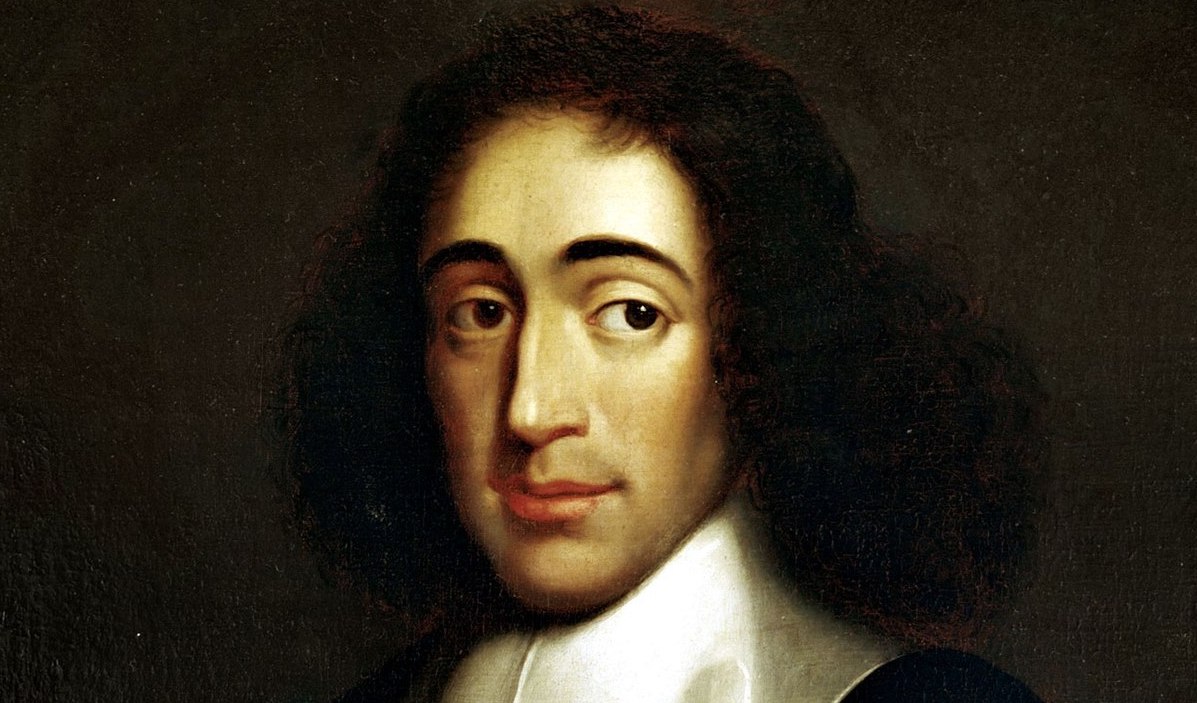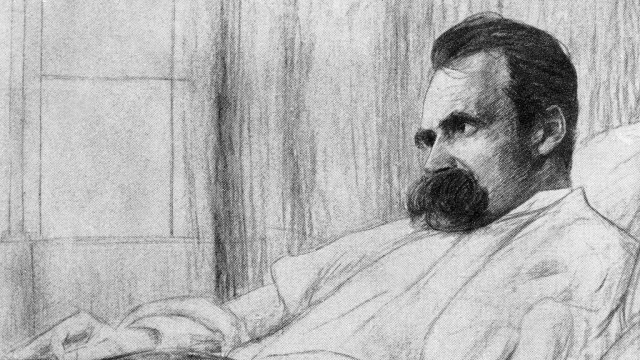Spinoza on how to stop living a substandard life

- Baruch Spinoza (1632-1677) was a philosopher of the Dutch Golden Age.
- He believed that we consciously act against our best interests because we are controlled by our emotions.
- Our liberation, according to Spinoza, involves embracing reality in a way that allows you to become the best person that you want to be.
Baruch Spinoza (1632-1677) was a philosopher of the Dutch Golden Age when advances in mathematics and the sciences expanded and flourished. Spinoza’s tumultuous rise as a philosopher came after a long battle with his traditional Jewish faith — having been raised in and harshly excommunicated by the Sephardic community in Amsterdam. Spinoza’s excommunication came in response to his Tractatus Theological-Politicus (Theological-Political Treatise), one of the first significant instances of biblical criticism written and widely published in the West. And while this earned Spinoza the reputation of heresy and atheism, Spinoza believed that he was far from either. Rather, his view was that the system of philosophy and theology he created — purely through his reasoning faculties — could make humanity more rational, moral, and happy if followed.
Spinoza’s intellectual journey largely began in the way most of us remain for quite a long time —and for some, it endures until death, which is an existentially terrifying thought. In his first work, Tractatus de Intellectus Emendatione (Treatise on the Improvement of the Understanding), almost autobiographically, Spinoza communicates the existential realization that much of what our ordinary waking life amounts to is entirely pointless and that the things most of us desire are futile to strive after. After all, at the end of the day, what really is the point of momentary pleasure-seeking, honors, and riches, other than to satisfy one’s vanity? Deep down, these things do not truly matter all that much, and when they inevitably vanish, our pleasure does too.
Spinoza warns against a substandard life
Most importantly, another realization he expressed is that human beings are not wholly at the wheel in their decision-making abilities. We often consciously act against our best interest, or as Spinoza puts it, we often see the good but choose the bad anyway. This is because our emotions control us far more than we control them, and these usually are not the sort of emotions we would otherwise want guiding us. Consider, for instance, how things play out when you act in accordance with whatever your hatred, anxiety, or indiscriminate dopamine systems tell you. We are very often — perhaps, primarily — in the grip of our passions and act, not because we have thought things through, but because we “felt like it.” As a result, the outcomes of our decisions are substandard — even by our own standards! — which often accumulate into a substandard life. Each of us idiosyncratically has an exemplary way of being and acting, and such substandard decisions prevent us from acting in accordance with our best selves.
“For he that wavereth is like a wave of the sea driven with the wind and tossed.”
James 1:6
Clearly, each of us has the capacity to envision a life that we wish we had — a life that is respectable and fulfilling to usand valuable to others as well. These are not material or practical desires but spiritual ones. Yet, most of us, for the most part, fall short of this ideal. Existentially and empirically, these are true claims about what it is and means to be a human. If that is the case, what are we to do about it? Is there really any other question worth asking than that? Of course not! We can, nonetheless, consult Spinoza for his masterpiece entitled Ethics, which in large part attempts to resolve this existential dilemma.
Surely, we have all seen the antithesis to Spinoza’s average human being. There are unquestionably rational actors who act according to their own and everyone else’s best interests. And in doing so, they lead happy and healthy lives. What separates such a person from the rest? Are they innately like that? Or did they cultivate some skill that most of us simply have not heard of?
Spinoza believed that responsible and joyous sages, who act according to reason unprompted, do exist, but he also thought that the population of such sages was negligible. As for the rest of us, something needs to be cultivated, but what and how?
“To be a philosopher is not merely to have subtle thoughts, or even to found a school, but so to love wisdom as to live according to its dictates,” said Henry David Thoreau. But what does it mean to love wisdom as to live according to its dictates? And how can one go about following Thoreau’s philosophical way? Why do we, as a species, have such a strong proclivity toward actions, beliefs, and passions like jealousy, resentment, ingratitude, chauvinism, spitefulness, and hatred? And why is it so hard for us to break free of these all-too-human tendencies?
What Spinoza says is the root of our problem
Spinoza believes the primary problem is a lack of understanding. Our “bondage,” as Spinoza calls it, fundamentally arises due to a significant ignorance regarding the nature of reality. And because of this ignorance, we become vulnerable to external causes that negatively affect our psychology. What about reality are we ignorant of that is holding us back? Several things.
For instance, Spinoza believes that reality is deterministic — a notion that might be corroborated by modern physics — and therefore, free will is an illusion. We readily believe that there is an intentional order to existence — whether that consists of God’s plan or Marxist dialectics, we are generally convinced that there are calculated and considered reasons for all phenomena. Instead, Spinoza instructs us to understand that we, and everything else, are the product of an infinite chain of causes. We hear contemporary versions of this scientifically, for instance: After the Big Bang, stars arose, which eventually led to planets and biological life. All of this did not happen because someone or something intended or wanted it to, but rather, it did so from the very necessity of the laws of nature. We are not in the grips of our emotions because we are bad people; rather, it is simply the result of natural happenstance. But, more often than not, we fail to realize this and live our lives believing that we are bad people, which is false. Replacing falsities of this sort with their antithetical truths is what Spinoza believes to be the solution to our initial existential dilemma.
We need to accept the fact that there are external causes — like biology, culture, and socio-economic factors — which are far more powerful than us and which limit our power to act and think in the ways we otherwise would wish to. And all of this acts in conjunction with our general inability to regulate our emotions, causing us to live second-rate lives. Fundamentally, realizing this is the first step to resolving our bondage.
Liberation through embracing the truth of reality
According to Spinoza, when a true idea replaces a false one, our involvement in thought and action increases. Thus, realizing the truth of reality — that our emotions and externalities mainly control us — will, in a way, light a fire under one’s belly to take more steps towards liberation.
The next is self-love. And Spinoza’s definition of self-love is quite simple: it brings about feelings of joy in oneself through recognizing oneself — not an emotion or an externality — as the cause of an action or thought. How do we know we were such a cause? We acted and thought, but we did so in a way that brought us closer to our ideal idiosyncratic way of being. The idea here is that the more you act in that way, the more capable of self-love you will become.
Such self-love significantly entails self-preservation — to take care of your own needs before attending to anyone else. And these “needs” are not the same thing as your “wants.” Rather, this means to genuinely take care of yourself by absorbing yourself in what you are interested in and making an imperative of cultivating and maintaining your physical and mental health. Striving to strengthen the strongest and most significant aspects of yourself is what Spinoza calls “virtue.” To act in your rational self-interest — to become the best person you can be, rather than a dogmatic libertarian — is Spinozistic virtue. “Blessedness” is the satisfaction of mind which follows from virtue.
But, blessedness is not the end of the story. What shall we do about other people? Living in isolation is not an option. We are, for better or worse, stuck with one another. Spinoza believes that we cannot help but want the same for others once we have achieved virtue. This is not the same thing as saying, “Look at me. I am a writer, and I’m in shape, so you should do the same.” It would not make sense if everyone’s tangible ends were unified; not only would this be impractical, but it would require force, which is antithetical to virtue itself.
Instead, we should want for others the good we have attained through our understanding: namely, the ability to act and think in a way that facilitates the creation of our distinctive ideal. The point is that this differs for everyone. If everyone were to attain virtue in this manner, we would all become more useful to one another. If, for instance, everyone gets to work in the occupation best suited to their individual aptitudes, needs, and interests, we would have a much more cooperative and competent workforce. Not to mention, more of us would experience “blessedness,” allowing for more peaceful and joyous cohabitation among individuals.
Modern neuroscience and psychology vindicate Spinoza’s beliefs on ethics, knowledge, and human psychology. We are primarily self-referential and absorbed in uncontrolled and unconscious emotions. And, through the pursuit of meaning, character development, self-determination, and self-preservation, we can overcome our natural proclivities, resulting in a much more wisely lived and self-actualized life.
Spinoza ends Ethics recognizing the difficulty of attaining virtue:
“If the way I have shown to lead to these things now seems very hard, still, it can be found. And of course, what is found so rarely must be hard. For if salvation were at hand, and could be found without great effort, how could nearly everyone neglect it? But all things excellent are as difficult as they are rare.”
It is unlikely that most — let alone many — of us will attain the Spinozistic ideal. But it is difficult to argue against its desirability. Perhaps we ought to pursue it notwithstanding its improbable attainment.





